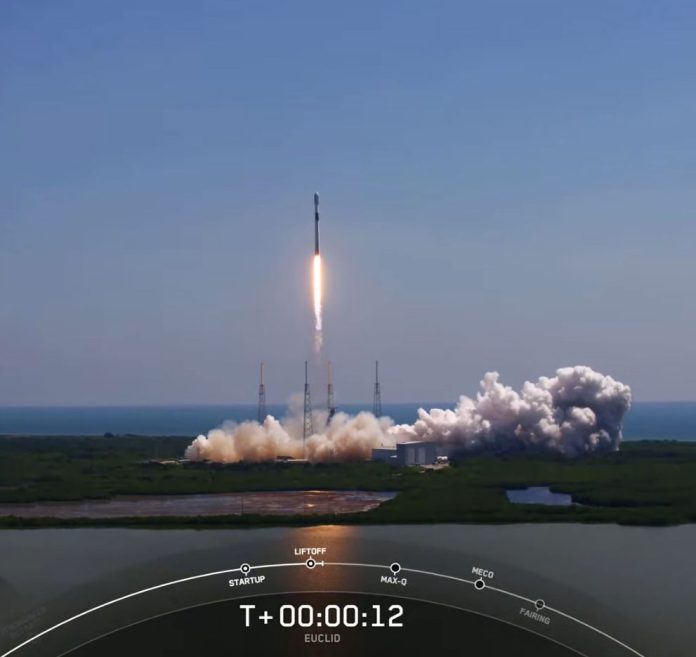by InTrieste
The launch of the Euclid, which will use a telescope to survey galaxies as far away as 10 billion light-years from Earth, was observed from the Astronomical Observatory of Trieste on Saturday, 1 July.
A European-built orbital satellite blasted off from Florida on a quest to explore the mysterious cosmic phenomena known as dark energy and dark matter, unseen forces scientists say account for 95 percent of the known universe.
The telescope Euclid, named for the ancient Greek mathematician known as the “father of geometry”, was carried aloft in the cargo bay of a SpaceX Falcon 9 rocket that was launched from Cape Canaveral Space Force Station on Saturday.
The lead scientist said Euclid will measure dark energy and dark matter with unprecedented precision.
“In the months following the launch here in Trieste we will receive the first data and finally we will be able to execute the thousands of lines of code that have been developed by researchers to scientifically calibrate and analyze the images taken by Euclid” comments Andrea Zacchei (INAF-OATs), head of the ground segment which is in charge of the data analysis up to their publication on the ESA website and the operations of the instruments. And he adds: “The INAF-Astronomical Observatory of Trieste hosts one of Euclid’s Science Data Centers (SDC) dedicated to the development and execution of the algorithms necessary for data analysis. We expect six years of observations and a large amount of data that will be a gold mine for world astrophysics and will increase our knowledge of the Universe. Once again the collaboration between INAF-Osservatorio Astronomico di Trieste, the University of Trieste and SISSA is essential for the success of the Euclid mission, as it was for the Planck mission”.
SISSA, Istituto Nazionale di Astrofisica – Osservatorio Astronomico di Trieste (INAF-OATs) and the University of Trieste (UniTS) are strongly involved in the mission: they are in fact protagonists both for the development of the technical and scientific analysis algorithms, and in the interpretation of data, as well as having the responsibility for the operations of the instruments on board the satellite.





























